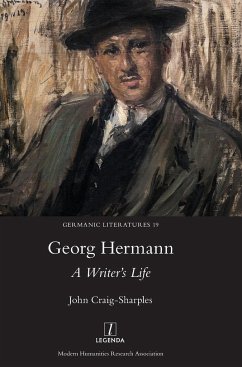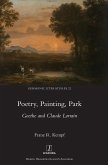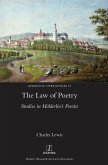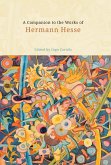Following the success of his novel Jettchen Gebert (1906), Georg Hermann (1871-1943) became one of Germany's best-loved authors: Schnitzler called him 'the Jewish Fontane'. A Berliner himself, Hermann was celebrated for capturing the spirit and atmosphere of the city, and renowned for his Impressionistic ability to evoke mood and ambience. He became a prominent opponent of war in 1914, and his journalism during the Weimar years shows him to have been one of the first writers to recognise the threat posed by the rising tide of anti-Semitism. Facing arrest in March 1933, he went into exile in the Netherlands, but continued to publish new novels, most notably Rosenemil (1935). Following the German occupation, Hermann was incarcerated in Westerbork in June 1943. He was transported from there to Auschwitz, where he died. Richly illustrated with previously unseen photographs from the family's extensive private collection, this intimate study tells Hermann's complete story for the first time, blending an exploration of his personal world with analysis of his principal works, and reveals how an understanding of Hermann's life offers fresh insights into the darkest period in German history. John Craig-Sharples read Modern History at Brasenose College, Oxford, and has subsequently worked in the UK civil service. He is Georg Hermann's great-grandson.
Hinweis: Dieser Artikel kann nur an eine deutsche Lieferadresse ausgeliefert werden.
Hinweis: Dieser Artikel kann nur an eine deutsche Lieferadresse ausgeliefert werden.








